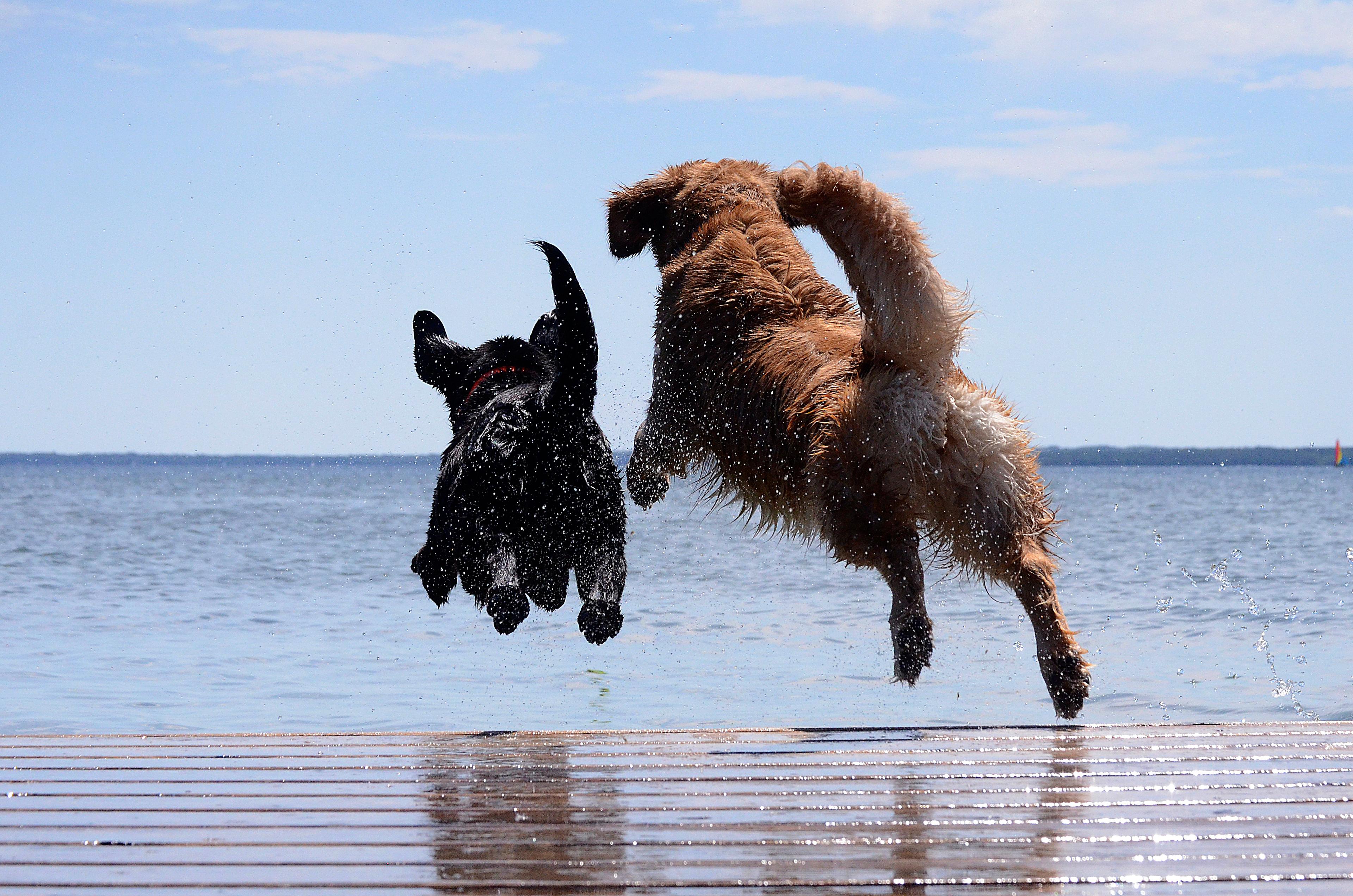The word congestion means overcrowding or clogging. In the context of dogs, congestion refers to the dog’s nasal part of the respiratory system getting overloaded with naturally produced mucus. We humans call it sinusitis.
Mucus is actually good for both humans and dogs as it is produced by the body to get rid of any disease-causing pathogens or dust. But too much mucus can cause the passages to swell leading to a stuffy and blocked nose. The most common reasons a dog’s body produces excess mucus are allergies and bacterial or viral infections.
Congestion, also referred to as ‘Rhinitis’, in dogs can be a short-term condition or a chronic one. In either case, it would be painful for your dog. It can have a severe impact on your dog’s health and longevity as well. For these reasons, it is important for you, as a caring pet parent, to identify the symptoms of congestion before it becomes worse. Learn more from Spot Pet Insurance today!
Symptoms of Congestion in Dogs
The most common signs that your dog is having a stuffy nose are –
Colored discharge – If you notice a yellow, green, clear, white, or brown colored discharge from your dog’s nose, there must be something wrong.
Frequent snorting – If you find your dog sneezing or snorting repeatedly then it may be a sign of congestion.
Inflammation – Just like our eyes appear swollen and watery, dogs with congestion may show the same signs.
Labored breathing – Open-mouth or labored breathing, especially without any physical activity is also a sign of a blocked nose.
Reverse sneezing – Some dogs may also experience aspiration reflex or reverse sneezing, a short rapid inhalation in an attempt to clear the nose.
Pawing – Dogs often use their paws to communicate. Pups paw at their mothers for milk, your dog might paw at you if it wants attention or food. Similarly, if your dog is pawing at its own face repeatedly, it may be trying to communicate about its blocked nose.
How to Cure a Stuffy Nose in Dogs?
If you have noticed any of the above-mentioned symptoms in your dog recently, you can try the following home remedies to cure the stuffy nose of your dog.
Steam – You can take your dog along for a hot shower. Do not put the dog in the shower. You can enjoy the hot shower while the moisture from the steam can help drain the mucus from your dog’s nose.
Massage – Gently massaging your dog’s nose and surrounding areas can stimulate excess mucus to drain.
Aspirator – There are nasal aspirators available for dogs. You can insert the tip of the aspirator in the dog’s nose to clean out the excess mucus.
Humidifier – A clean humidifier can help increase the moisture in the air and hence drain mucus out of your dog’s nostrils.
Apart from these, you should check if you have recently changed any cleaning products, perfumes, colognes or even hairsprays. These can agitate sensitive dogs.
When Should I Be Worried About my Dog’s Stuffy Nose?
Your dog’s congestion should ideally go away in 24-48 hrs. But if it doesn’t then it may be a sign of an underlying medical condition. Apart from allergies and viral infections, congestion in dogs can also be caused by –
Breathing smoke or other harmful gases
Trauma
Parasites
Foreign Bodies
Kennel Cough
Canine Distemper
Canine Influenza
Teeth or gum problems
Pneumonia
Tumors
Chronic Inflammatory Disease like lymphoplasmacytic rhinitis
Hence, if your dog’s congestion doesn’t improve in 24-48 hrs., you should consult the vet to find the underlying reason. If your dog’s nasal discharge has blood in it, you should run to the vet. Even if you suspect a foreign object in your dog’s nose, you should straight away seek expertise.
My Dog Has a Runny Nose and is Sneezing
This is the question that we often get asked by dog parents. We hope from the above explanations, you know the reason why it happens and what you should be doing to cure it. To prevent the runny nose in the first place, you need to take care of the following.
Clean nose – Using a warm, damp washcloth can help keep the dog’s nose clean and moist. You can also use Vaseline if the area around the nostrils appears dry, crusty, or irritated. It would help moisturize and protect the tissues.
Hydration – Adequate meals, water intake and rest can ensure good health for the pup, hence reducing the chances of it falling sick.
Medicines – Common antihistamines like Benadryl or Zytek can help with minor cases of runny nose and sneezing. However, we recommend consulting your vet before administering any medicine to your dog.
More About Spot Pet Insurance
If the signs of congestion keep appearing frequently then it is recommended that you visit a vet. The vet may perform various tests to identify the root cause. It may include a CT scan, rhinoscopy, blood cultures, microscopic cytology testing, or X-rays. In the case of chronic rhinitis, the vet would have to depend on antibiotics, antihistamines, oral and inhalant steroids, nonsteroidal anti-inflammatories, and/or antifungal medications for treatment. This could turn out to be a long-lasting and expensive affair at times. With pet insurance, you could save 90% of them.
Spot accident and illness plans can be used with any licensed vet in Canada or the U.S. Whether you are home, or travelling to the U.S., veterinary services your pet receives for the diagnosis, treatment, or management of covered conditions can be eligible for reimbursement. Spot’s accident and illness plans can help cover a variety of conditions including broken bones, lacerations, aggression, kidney disease, diabetes, and more. With the addition of Wellness Riders for an extra cost, you can also receive reimbursements for wellness exams, certain vaccinations, dental cleanings, and more.
Learn more about dog insurance or get a free quote!
Related Readings

Mostly a tech person, always a pet person. I am dedicated to improving the lives of pets and their humans with technology. Off-duty, I enjoy writing about the misbehaving of computer programs and my two Aussiedoodles, Calvin and Hobbes.
Windsor, R., & Johnson, L. R. (2006). Canine chronic inflammatory rhinitis. Clinical Techniques in Small Animal Practice, 21(2), 76–81. https://doi.org/10.1053/j.ctsap.2005.12.014
Kuehn, N. F. (2018, June 25). Rhinitis and sinusitis in dogs. MSD Veterinary Manual. https://www.msdvetmanual.com/dog-owners/lung-and-airway-disorders-of-dogs/rhinitis-and-sinusitis-in-dogs
Gascon, A. (2023, December 1). How to help a dog with a stuffy nose. GoodRx. https://www.goodrx.com/pet-health/dog/stuffy-nose












